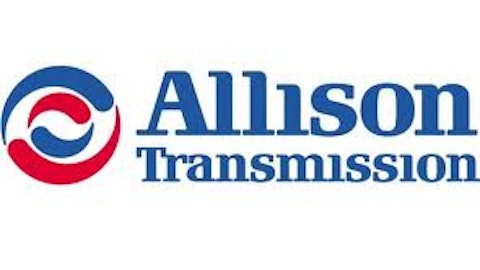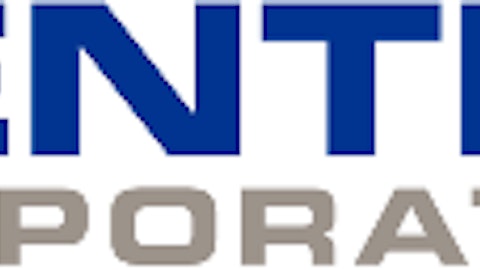In a few earlier articles, I highlighted the prospects of companies that produce auto parts, arguing that this industry may offer better growth prospects compared to traditional automotive stocks. While there are a great number of choices in this segment, one stock in particular stands out at the moment due to its rock-bottom valuation and impressive growth. Lear Corporation (NYSE:LEA) looks like an excellent play on the auto industry.
Lear at a Glance
Lear Corporation (NYSE:LEA) supplies parts to the automotive industry, operating in two segments, namely seating and electrical power management systems. The company produces parts such as seat frames, recliner mechanisms and electrical distribution systems. The stock has a market cap of $5.6 billion and has rallied around 60% in the last year. Furthermore, it yields 1.11%.
Earnings Strength
Lear Corporation (NYSE:LEA) has been outpacing the industry in terms of EPS growth over the last few years, and after a loss in 2009, has been growing annual earnings impressively. Annual EPS grew from $4.42 in 2010 to $5.49 in 2012, and analysts are expecting a 3-5 year growth rate of around 23%. In terms of quarterly reports, the company has beaten the consensus for six consecutive quarters.
For the latest quarter, Lear Corporation (NYSE:LEA) reported EPS of $1.30, beating expectations by $0.20. Net sales for the period were up 8% to $3.9 billion, and core operating earnings were up 3%. Additionally, this was the 14th consecutive quarter of year-over-year margin expansion, and the company upped the dividend by 21%. The Electrical Power Systems Management segment did particularly well with a 25% increase in net sales, driven by new business and higher production rates.
Industry Peers
Autoliv Inc. (NYSE:ALV) is another producer of auto parts, although they are active in a different segment. EPS growth seems to have dried up a bit for this company after peaking at $6.65 in 2011, dropping to $5.82 in 2012. Analysts are expecting EPS of $5.65 in 2013. The stock yields a little more than Lear Corporation (NYSE:LEA), however, with the dividend at around 2.6%, but it is considerably more volatile with a beta of nearly 2.
Dana Holding Corporation (NYSE:DAN) is a supplier of driveline technologies and power systems, producing a range of automotive parts. After losing money between 2007 and 2009, the firm is back in the black again, although it does not offer the same kind of growth as Lear. The company delivered fairly large EPS misses in Q3 2012 and Q1 2013, although the expected 3-5 year growth rate is very high at around 44%.
Valuations and Metrics
While Lear Corporation (NYSE:LEA) is a good choice in terms of growth, its valuation is where the stock truly shines. It currently trades at a ridiculously low 4.78 times trailing earnings, which is inexpensive by any standards. For comparison, Autoliv Inc. (NYSE:ALV) trades at 14.64 and Dana Holding Corporation (NYSE:DAN) at 15.81. Lear’s price-to-sales of 0.37 is also very low, whereas the return on equity of 41.66% is excellent. Moreover, the company has a fairly healthy balance sheet, with $1.6 billion in cash and around $1.06 billion in debt.
The Bottom Line
As an alternative to traditional automobile stocks, producers of car parts offer excellent opportunities for growth. Lear Corporation (NYSE:LEA) seems to be doing a good job of growing earnings, but perhaps more convincingly, is trading at an absolute bargain at the moment. Investors looking to profit from growth in the auto market would be wise to investigate this stock.
The article A Deeply Undervalued Play on the Auto Market originally appeared on Fool.com and is written by Daniel James.
Daniel James has no position in any stocks mentioned. The Motley Fool recommends Autoliv. Daniel is a member of The Motley Fool Blog Network — entries represent the personal opinion of the blogger and are not formally edited.
Copyright © 1995 – 2013 The Motley Fool, LLC. All rights reserved. The Motley Fool has a disclosure policy.






